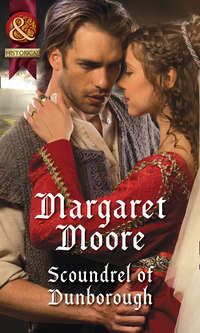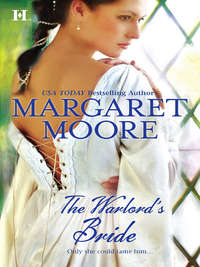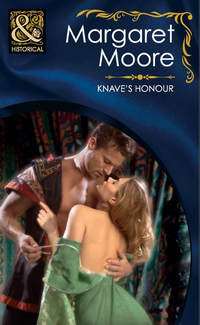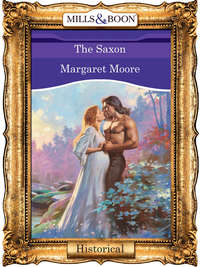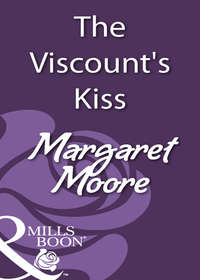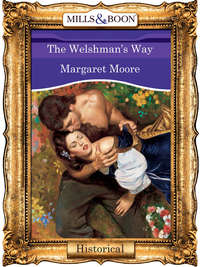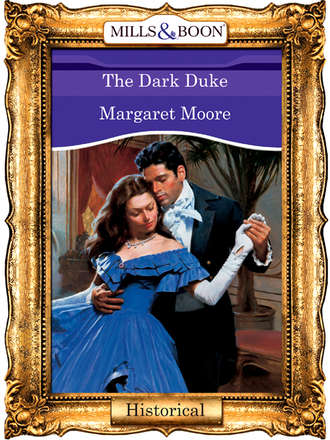
Полная версия
The Dark Duke
She sat in a chair near the one upon which he had been sitting. “So, Lady Hester,” he said in a low tone that set her heart beating rapidly, “what are you doing at Barroughby Hall?”
“Your stepmother corresponds with my mother, and when she heard the duchess was looking for a companion, she thought I would do,” Hester replied matter-of-factly, trying to regard him with composure, reminding herself that he was a flirtatious man by nature, and his attention had nothing to do with her personally.
“What did you think?” He strolled behind her chair, and she wished she could see his face.
He sounded as if he truly cared, which created a sense of intimacy far more dangerous than his kiss had been. Nevertheless, she would remember who and what he was, and who or what she was. “Since I had no better prospects, I agreed.”
“No better prospects?”
She didn’t answer. He knew very well what she meant.
“But you cannot like it here,” he said, as if she could not possibly disagree.
“This is a lovely estate. I enjoy the garden very much, and—” she smiled and gestured at the walls “—the library.”
“My stepmother is not an easy woman.”
“Perhaps she has mellowed during your absence.”
The duke’s response was a sniff of disdain.
“The duchess provided a change of scene,” she replied honestly.
“I daresay,” he said, continuing his stroll around the room. “I have seen your sisters in London, but not you, I don’t believe.”
“No doubt you didn’t notice me.”
“Are you often overlooked?”
“Yes, Your Grace.”
“You don’t sound very bitter,” he remarked with a wry smile.
She shrugged her shoulders. “My sisters are beautiful. I am not. There is nothing I can do about that.”
“I see.”
She didn’t think he did. No man as handsome as he would ever understand what it was like to be the ugly duckling in the family.
He moved back to the fireplace and continued to regard her with a scrutiny that grew increasingly unnerving. “I wonder what you really want, Lady Hester” he murmured.
“I told you. Your Grace. A book.”
He smiled, a more genuine smile, she thought, than she had yet seen him bestow upon anyone, including Damaris Sackville-Cooper. “I meant from life.”
“I hardly think, Your Grace—” she began to protest.
“Oh, I suspect you do a great deal of thinking,” he interrupted. “Let me guess at the deepest desires of Lady Hester Pimblett”.
She started to stand. “My lord, I—”
“First, attention.”
She straightened her shoulders and frowned deeply. “Your Grace, I really must protest—”
“Second, excitement.”
“If by that you mean the type of excitement you seem to crave, Your Grace, I assure you I can well do without!” Hester said sternly. “Since you are apparently only interested in making sport of me, I will take my leave of you, whether you excuse me or not!”
“I promise I shall stick to only the most mundane of subjects,” he pleaded unexpectedly, and with a most beguiling smile. “The weather. My injury. The fungus on my horse’s hooves. Whatever you wish, as long as you will stay a little longer.”
Hester suddenly realized there was nothing about this man that was not seductive, whether it was his looks or his voice or the way he could make every word an invitation, every gesture intimate. “I believe I have stayed far too long as it is. Good afternoon, Your Grace.”
She hurried to the door, then turned on the threshold and faced him with a mocking little smile of her own. “I shall tell your stepmother you are feeling better, as you most obviously are, and that you will surely join us for dinner.”
When she was gone, Adrian stared at the fire and tried to tell himself that Hester Pimblett was nothing so very special. They were both unappreciated children—they had that one little thing in common.
Well, that and a kiss. And he would not come down to dinner, even if he was finding the thought of speaking with Lady Hester again very tempting indeed.
Chapter Five
“Hester, where on earth have you been?” the duchess demanded when Hester returned to the drawing room.
Hester, having never felt so frazzled before, dearly hoped her absence would not be remarked upon further. Her wish was granted as the older woman rose from the sofa with more alacrity than Hester had ever seen her demonstrate before and waved a letter as if it was a call to battle.
“I have just received the most exciting news!” the duchess declared unnecessarily.
Hester thought she had had quite enough excitement for one day; nevertheless, she put a happy smile on her face as she tried to calm down.
“Elliot is coming home tomorrow!” the older woman cried triumphantly. “My darling boy, here, tomorrow!” She paused in her exclamations, and a small frown creased her alabaster brow. “If Adrian will send the barouche to Barroughby. Oh, but he must. Just think of it, my own dear boy home at last!” The duchess paused in her raptures. “You seem very dull this afternoon.”
Hester was still considering the part of the duchess’s declaration that had seemed rather odd. Why should the duke have to approve the order of a carriage? Was the duchess not in command of the estate? Had it not been left to her upon the fifth duke’s death? She always acted as if it had, and spent money frequently and lavishly.
The present duke had referred to Barroughby Hall as “my house,” but she had assumed he meant his family’s house.
If this were not so, and he was in sole possession of the estate, why did he endure the company of a woman he so obviously disliked, and whom he could send away whenever he chose? That would be the response one would expect of a scoundrel.
“I am so happy for you,” Hester said, attempting to sound delighted, and reflecting that if she wasn’t careful, she would become as hypocritical as Canon Smeech. Nevertheless, she couldn’t help mentally contrasting the reception of the news of this son’s return with the way the duchess had received word that the duke was coming home. Still, one was a step son, the other her own child. The duchess would not be alone in preferring the child of her body over that of a son by marriage.
“He writes from Dover to say he can hardly wait to get here!” the duchess exclaimed. She walked to the windows and gazed out at the drive, as if she expected to see Lord Elliot’s carriage at that very moment. “He was ill, and only now recovered. I shall have to be a little cross with him for not telling his mama.”
“What is all the excitement?” the duke asked nonchalantly as he strolled into the drawing room. “Have we been robbed?”
Hester eyed the door with a view to escaping, but knew she was trapped as surely as any fly in amber. She would just have to forget about his kiss and try to maintain her composure.
“Of course not!” the duchess replied. “Elliot is coming home.”
“Is he, indeed?” the duke said, regarding his stepmother with a steely gaze such as Hester had never seen, at once cold and pleased. Thankfully, no one had ever directed a look like that at her, and she was reminded that the duke was also said to be a violent man. She had forgotten that, thinking of his other reputed qualities, but anyone witnessing him now could well believe the other, too, even if the expression was gone nearly as rapidly as it had appeared.
His initial response seemed to penetrate the duchess’s unbridled happiness. “I hope you won’t make things difficult, Adrian,” she said anxiously.
“Not I,” he said, sauntering toward the sofa and sitting. “I’m quite looking forward to seeing Elliot again.”
The duchess visibly relaxed. “Good. Unlike some people, he tries not to fret his family.”
The duke ignored her pointed remark. “What else does dear Elliot say?”
“He will be here tomorrow, if you will send the barouche to Barroughby.”
The duke smiled. “Heaven forbid I should do anything to delay Elliot even more. Of course he may have the barouche.”
“We must have an especially fine tea tomorrow, too,” the duchess continued, and Hester noted that she did not thank her stepson for his acquiescence.
“Ah. So we should kill the fatted calf?” The duke glanced at Hester, a mocking expression on his face.
It was a peculiar comparison. Was he not the prodigal son, wasting his inheritance in indulgence and indolence?
“We really should have a party or a ball to welcome him back from Europe,” the duchess said.
Hester could not suppress her displeasure at that thought. She had spent too many boring and disturbing hours sitting against the wall, watching other couples dance, to think of balls or other such entertainments with any pleasure.
She realized the duke was looking at her again, and she quickly smiled. “A ball will be quite delightful,” she lied.
“It will be too much work,” the duke said firmly. “And too expensive.”
“I might have known you would begrudge us the pleasure,” the duchess replied peevishly. “You seem to have no trouble finding money to fritter away on your own vile pursuits, but when I suggest a ball—something we should have done long ago, as befits our place in society!—you are suddenly lacking in funds!”
“Expense aside, if I were to agree, who would make all the arrangements?” the duke inquired calmly.
“Why, I would, of course!” the duchess exclaimed.
“I’m sure,” the duke muttered. He glanced at Hester with a knowing smile that seemed to suggest he knew who would do most of the work if such an event were approved. Further, as the blood rushed to her face, she felt he sympathized with her. “That a ball will require much effort I do not doubt,” the duke commented to his stepmother. “However, if you are willing to take it on, I suppose I could find the funds.”
Hester addressed the duchess. “Your Grace, considering that the duke will surely be unable to dance, perhaps we should postpone consideration of a ball until a later date.”
The duchess looked at Hester as if she had proposed a beheading. “I understand my stepson is said to go hunting after drinking all night. Surely he will be able to manage a few short dances, for propriety’s sake.”
“Why, stepmother!” the duke said, placing his hand upon his heart. “I am so touched to think that you want me to attend. By all means, then, Lady Hester, we must and shall have a ball.”
The duchess shot Hester a black look, as if she had been the one to suggest the ball in the first place.
“I’m sure all the county will want to see Lord Elliot again,” Hester said placatingly.
Which, she realized when the duchess smiled, was the best thing she could have said. “Indeed they will!” the duchess exclaimed. “Everyone adores him!”
Not everyone, Hester thought. Not the duke.
“Hester, you must help with the invitations. Now, what day would be best?”
“Should we not consult with your son, Your Grace?” Hester asked softly. “He may be too fatigued from his journey to attend such a function for a few days.”
“Lady Hester is forever concerned about other people’s welfare, I see,” the duke remarked.
Hester felt herself blushing again and told herself to stop at once.
“I didn’t think of that,” the duchess said. “Of course, you are quite right. And we should have him to ourselves for a little while.” She laughed as gaily as a women twenty years younger. “He is so popular, he is sure to be invited riding and hunting every day, and he is so accommodating, he will never refuse.”
“Elliot never says no,” the duke confirmed before standing. “I believe I shall retire to my room. I find all this talk of balls fatiguing.”
“As you wish,” the duchess replied.
The duke bowed politely. “Your Grace. Lady Hester.” He turned on his heel and strolled out of the room.
“Did anyone ever have such an infuriating relation?” the duchess demanded when he had closed the door. “Really!”
“It seems a pity you need his permission to hold a ball,” Hester said nonchalantly.
“It is! Let this be a warning to you, Lady Hester, to make sure that your husband leaves you your own money, and not in the control of his heir. It is most aggravating, I assure you.”
Hester dutifully nodded as she digested the import of the duchess’s words. The duke apparently had complete control of the estate and the money. Complain as the duchess might, it was undeniable that the duke was generous, for only last week the duchess had ordered several jewels reset, three new gowns, several hats and five pairs of shoes. The meals at Barroughby Hall were inevitably bountiful and excellent, the wine the finest and the servants well attired.
“Now, whom should we invite?” the duchess said happily, resuming her usual seat on the sofa. “I suppose we’ll have to have Sir Douglas and his daughter.”
“Yes, Your Grace,” Hester replied, fetching some paper, pen and ink, ready to write down her orders. Then she realized that the duchess was giving her a rather peculiar look. “Is something the matter. Your Grace?”
“You seem a little flushed, Hester.”
“The excitement of your son’s return and the ball, Your Grace,” Hester answered, hoping that would do for an explanation.
“Sir Douglas is not a very old man to have a grown-up daughter, is he?”
“No, Your Grace.” Hester gazed at the duchess, wondering what the woman was getting at. She usually spoke of Sir Douglas with undisguised loathing; this morning she seemed disposed to be gracious. Perhaps the news of Elliot’s return ensured good spirits. Hester certainly hoped they would last!
“He seems in good health, too.”
“Yes, Your Grace.”
The duchess said nothing further about Sir Douglas, except to put his name on the list, which soon grew to fifty families. By the time they were finished, it was the hour to dress for dinner.
The duke did not join them at the meal, and Hester told herself she was glad to be spared the anxiety his presence would no doubt have engendered.
“He is three hours late,” the duke said, nodding at the antique German clock on the lacquered table in the drawing room. Hester followed his gesture and tried not to sigh. The barouche had been dispatched, and the weather was fine. Although it was difficult to know the. exact hour Lord Elliot might arrive, she, too, was wearying of sitting in disappointed expectation in the drawing room. “We should have our tea,” the duke continued.
Hester regarded him silently as he stood near the mantel, for he was not looking in her direction, but only at his stepmother. His attitude was one of graceful negligence, yet he was not fooling her. She could see the tension in his well-dressed body, the anger in his shoulders and the frustration in his frown.
“Nonsense!” the duchess exclaimed. “Elliot is only slightly delayed. Perhaps he had to rest awhile on the journey.”
“No doubt,” the duke remarked, and Hester knew by the tone of his deep, rich voice, that he was still not impressed. “Nevertheless, we do not want Lady Hester to perish from hunger.”
“I am quite all right,” replied the lady in question, wishing she could retire from the room. She had absolutely no desire to be drawn into a family dispute.
“But I would be remiss as a host if I did not do my best to see to your needs.”
There was something in his tone that commanded her attention, and when she looked at him, she wished she had not, for he was once more giving her a slight smile that seemed to promise that he could, and would, fulfill any and every wish she might make of a handsome man.
How many times had she sat at a ball and overheard this type of remark, and how many times had she silently replied, always mentally responding much more cleverly than the actual participants. But now she seemed to have been rendered incredibly stupid, for she could think of nothing at all to say except, “I assure you, I am in no hurry for tea.”
The duchess stalked to the window, her body visibly shaking with what seemed a combination of agitation and excitement, setting the several blue silk flounces of her dress to dancing. “I see no harm in waiting a few more minutes.”
“You must be sure to tell me if there is anything else I can provide, Lady Hester,” the duke said with a decorous bow and twinkle of knowing laughter in his eye.
“As long as it’s not too expensive,” the duchess said snidely without turning around from her vantage point.
“I appreciate your generosity, Your Grace, but I am content,” Hester said to the duke.
“You are a rare human being, then, to be content.”
“You make contentment sound boring, Your Grace.”
“Isn’t it?”
“To one of your temperament, perhaps, but it suits me well enough.”
The duke raised his black brows. “I think you do not approve of my temperament.”
“Since I hardly know you, I am not in a position to judge.”
“Then you are a rare woman, for most people have no compunction about judging me, whether they know me or not.”
“What are you two prattling on about?” the duchess demanded, glancing at them over her shoulder and reminding Hester that there was another set of ears in the room, and another mind to interpret their banter.
Which was very unfortunate, for Hester was just beginning to enjoy herself. She felt as if she was being offered a glimpse into the duke’s character, and she wanted to know more.
“You did send the best horses, did you not, Adrian?” the duchess demanded.
“My finest pair,” the duke replied. “I fear I am responsible for his tardiness,” he continued sorrowfully, “for I sent my finest carriage, best horses and a large sum of money to cover any expenses he might have incurred at the inn.”
“There’s the coach! I see it!” the duchess cried suddenly, excitement and relief in her voice as she stared down the long, winding drive leading to Barroughby Hall. “I can see Elliot! Come, Hester, look!”
Hester did as she was bid, and watched the black barouche with the ducal arms on the door, drawn by equally black horses, sweep up the drive. Inside was a tall young man wearing a hat, more than that, only a mother’s eye could discern.
The duchess watched until the carriage disappeared behind the stable wall, then turned triumphantly to her companions. “There, Adrian. I told you we should wait tea for him. He is sure to be hungry, the poor boy, after his tiring journey”. The duchess lifted her bounteous silk skirt and hurried from the room, no doubt intending to meet her darling boy at the front door.
Hester realized she was alone again with the duke, just as she noticed that the duchess had left her shawl. Mindful of the crisp autumn air and her own racing heart, she quickly decided to take it to her. She hurried to the sofa and picked up the soft wool shawl.
The duke raised one eyebrow inquiringly as he watched her. “You seem in a very great rush to meet the epitome of virtue,” he remarked, drawing a cheroot from the breast pocket of his jacket.
“I have never met a paragon before,” she retorted.
“If you do not take care, Lady Hester, I could be jealous.”
His mocking smile told her that he was merely teasing her, so she met his gaze boldly. “If he is virtuous, so you should be.”
Adrian’s eyes widened. It seemed there was no end to the surprises Lady Hester could provide.
She faced him now as one equal to another, again a trait that set her apart from every other woman he had ever known. Some, the vain ones, had believed themselves superior to him; others, the hopeful ones, had an almost pathetically needy manner. “Should you not take that to the duchess?” he said at last. “We wouldn’t want her to catch a chill, would we?”
“No, Your Grace, we wouldn’t.”
He watched her go, wondering at the emphasis in her final words to him. We. We, as in you and I together here? We against the others?
Not alone anymore.
Tempting thought. Tempting, foolish thought.
He lit his cheroot and sauntered after her, deciding his stomach could bear witnessing the tender reunion of mother and son, if only to see how the surprising Lady Hester would react to his half brother, the fair and charming Lord Elliot Fitzwalter.
Chapter Six
By the time Adrian reached the foyer, a pair of footmen were already carrying in a trunk, maneuvering the bulky piece of baggage up the wide stairs. Outside, three more servants stood ready to receive smaller pieces of luggage at the direction of Elliot’s Italian valet.
Elliot, all five foot nine of him, looking healthy as a horse, his hair lighter from the sun of southern Italy, his eyes bluer in his tanned face, and sporting the latest in European fashion, met his mother at the door, smiling blandly as she embraced him.
“Elliot, my dear boy, how are you?” the duchess cried.
“I am much better, Mama, now that I am here with you.”
The duchess hugged him again, but his attention had already wandered toward his half brother. “I see you have other company, Mama.”
The duchess drew back. “Yes.”
“Elliot, how good of you to arrive at last,” the duke said in greeting.
Lord Elliot made a crooked little smile, one side of his mouth rising slightly higher than the other, and continued to survey the foyer. His gaze came to rest on Hester, who stood silently at the bottom of the stairs, the shawl draped over her slender arm, waiting patiently, more like a good servant than a woman of rank.
The duchess had some right to be vain of her son, Hester thought. He was tall, attractive, fair and blue eyed, his manner pleasing, his posture erect and his movements athletic. His lopsided smile added to his charm and was not nearly so sardonic as his brother’s. They were nearly the same height, and their voices remarkably similar in their smooth, deep tones. She also realized that for a man who had been too ill to travel, he looked extremely healthy. Indeed, it was interesting to contrast the appearance of Lord Elliot with that of the duke upon his arrival.
Конец ознакомительного фрагмента.
Текст предоставлен ООО «ЛитРес».
Прочитайте эту книгу целиком, купив полную легальную версию на ЛитРес.
Безопасно оплатить книгу можно банковской картой Visa, MasterCard, Maestro, со счета мобильного телефона, с платежного терминала, в салоне МТС или Связной, через PayPal, WebMoney, Яндекс.Деньги, QIWI Кошелек, бонусными картами или другим удобным Вам способом.




